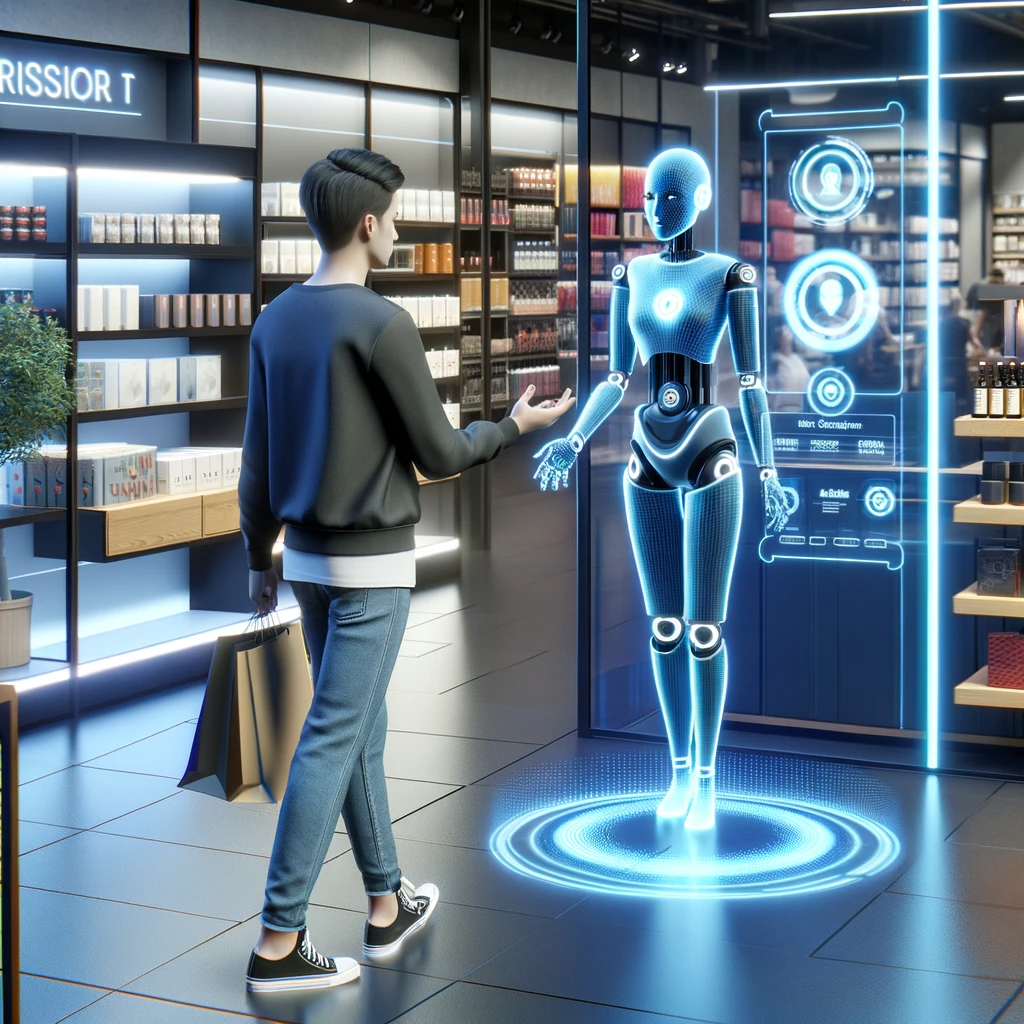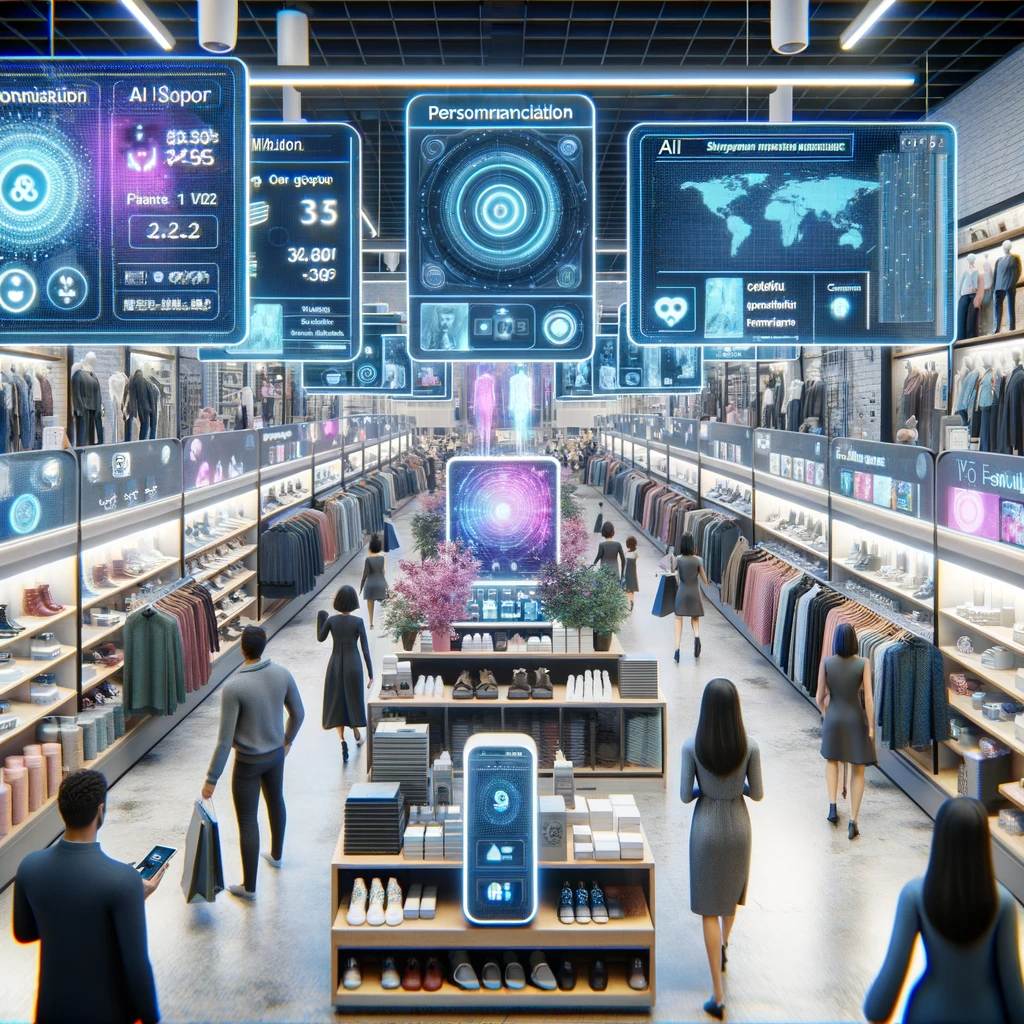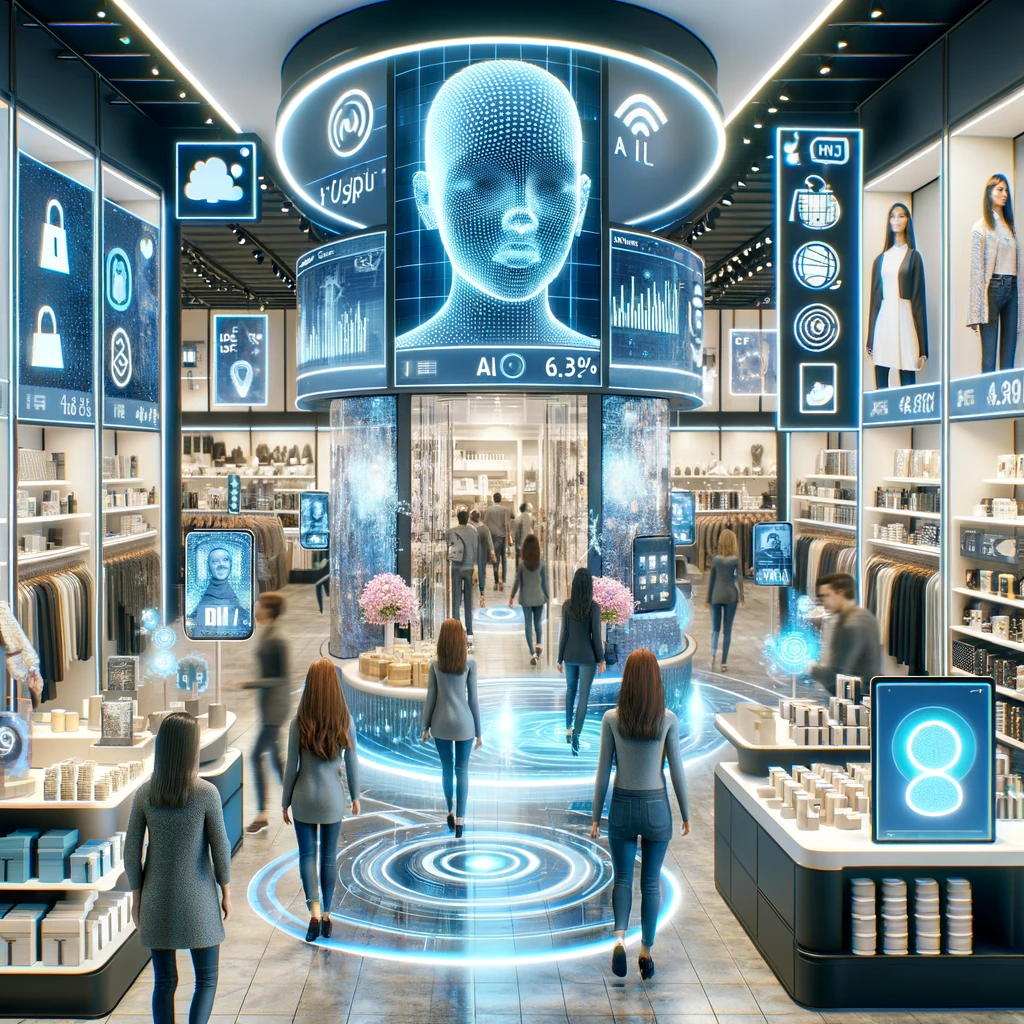In an era defined by the rapid growth of e-commerce and online shopping, traditional brick-and-mortar stores face a pivotal moment in their history. The digital age has brought unparalleled convenience, personalization, and efficiency to the world of retail, challenging physical stores to adapt or risk obsolescence. However, amid this digital transformation, a beacon of innovation shines brightly: artificial intelligence (AI).
AI, with its remarkable capacity to process vast amounts of data and offer personalized recommendations, presents a unique opportunity for brick-and-mortar stores to reinvent themselves. While online retailers have swiftly harnessed AI’s potential to provide tailored shopping experiences, the question at the forefront is whether AI can breathe new life into physical stores, offering customers personalized shopping experiences that rival their digital counterparts.
In this article, we embark on an exploration of AI’s integration into brick-and-mortar stores and its potential to revolutionize the retail landscape. We will delve into the ways AI can provide customized shopping assistance, optimize in-store layouts, and enhance customer service. Additionally, we will consider the ethical considerations surrounding AI in retail, including data privacy and bias. Join us as we unravel the possibilities and challenges of AI-powered personalized shopping experiences in traditional retail settings.
The Changing Landscape of Retail

The Rise of E-commerce: In the digital age, online shopping has experienced exponential growth, providing consumers with unprecedented convenience and personalization. E-commerce platforms have revolutionized the way we shop, offering tailored product recommendations, hassle-free transactions, and the ability to shop from the comfort of our homes. The allure of online shopping lies in its ability to understand and cater to individual preferences, creating a seamless and enjoyable experience for customers.
Challenges for Brick-and-Mortar Stores: Traditional brick-and-mortar stores, while once the cornerstone of retail, now find themselves facing significant challenges in this evolving landscape. The convenience and personalization offered by e-commerce have led to declining foot traffic in physical stores. Consumers have come to expect digital features like instant access to product information, online reviews, and personalized recommendations. To remain competitive and relevant, traditional retailers must adapt and innovate.
The Role of AI in Traditional Retail
The AI Revolution: Artificial intelligence, often referred to as AI, stands at the forefront of technological innovation across various industries. In the context of retail, AI holds the potential to bridge the gap between online and offline shopping experiences, offering traditional stores a lifeline in the digital era. By harnessing the capabilities of AI, brick-and-mortar retailers can reimagine the in-store shopping journey, making it more personalized and engaging.
Personalized Shopping Assistance: One of the most promising aspects of AI in traditional retail is its ability to provide a new level of personalized shopping assistance. AI achieves this by leveraging customer data and employing advanced machine learning algorithms. These algorithms analyze a customer’s past purchases, browsing history, and preferences to gain valuable insights. Armed with this knowledge, AI can recommend products that are highly relevant to individual customers, creating a shopping experience that feels tailor-made for them.
In the next sections, we will delve deeper into how AI is reshaping the brick-and-mortar shopping experience, from optimizing store layouts to providing virtual shopping assistants, and how these innovations aim to enhance customer service and satisfaction. We will also explore the ethical considerations surrounding AI in retail, including data privacy and bias, as we navigate the future of personalized shopping in traditional retail settings.
AI-Powered In-Store Experiences
Smart Store Layouts: AI’s impact on traditional retail extends beyond personalization; it also influences the very layout of brick-and-mortar stores. Through the utilization of AI algorithms and data analysis, retailers can optimize their store layouts to improve customer flow and enhance product discovery. This means that the placement of products, aisle design, and even the arrangement of signage can be tailored to create a more engaging and convenient shopping environment. Customers will find it easier to locate what they need, leading to a more satisfying shopping experience.
Virtual Shopping Assistants: One of the most exciting developments in AI-powered retail experiences is the introduction of virtual shopping assistants. These assistants can take various forms, including chatbots, interactive kiosks, and even smartphone apps. They are designed to guide customers through their shopping journey, answering questions, offering product recommendations, and providing information on promotions or discounts. By using natural language processing and real-time data analysis, virtual shopping assistants offer a level of assistance that can rival the personalized experience of e-commerce platforms. Customers can now enjoy expert guidance and support as they navigate physical stores, making their in-store experience more informative and enjoyable.
Enhanced Customer Service
AI-Powered Recommendations: One of the standout features of AI in traditional retail is its ability to provide personalized product recommendations. By analyzing a customer’s historical data and real-time interactions, AI algorithms can suggest products that align with the customer’s preferences. Whether it’s clothing, electronics, or groceries, these tailored recommendations enhance the customer’s shopping journey by making relevant products more accessible. As a result, customers are more likely to discover items that genuinely interest them, leading to increased sales and higher levels of customer satisfaction.
Real-time Inventory Management: Efficient inventory management is a crucial aspect of running a successful retail operation. AI plays a pivotal role in this domain by providing real-time inventory tracking and management capabilities. Traditional retailers can utilize AI to monitor their inventory levels, predict demand fluctuations, and optimize stock levels accordingly. When a product is running low, AI systems can trigger restocking orders automatically, reducing the likelihood of stockouts and ensuring that customers find the items they seek. Real-time inventory management not only enhances the customer experience by minimizing disruptions but also improves the overall operational efficiency of the store.
In the subsequent sections, we will delve into the ethical considerations surrounding AI in retail, addressing data privacy concerns and biases in AI algorithms. We will also explore the potential of AI to further revolutionize the future of personalized shopping in brick-and-mortar stores.
Ethical Considerations and Data Privacy
Data Collection and Privacy: As brick-and-mortar stores embrace AI to enhance customer experiences, they inevitably collect and analyze vast amounts of customer data. While this data can be invaluable for personalization and improving services, it also raises important ethical considerations related to data privacy. Customers entrust retailers with their personal information when they shop, and it’s paramount that this data is handled responsibly. Retailers must establish transparent data usage policies, obtain customer consent, and implement robust security measures to protect sensitive information. Balancing the benefits of AI-driven personalization with safeguarding individual privacy rights is an ongoing challenge.
Bias and Fairness: AI algorithms used for personalized recommendations and decision-making processes can inherit biases present in the data they are trained on. This can lead to unfair or discriminatory outcomes, impacting certain customer groups unfairly. It’s crucial for retailers to actively address bias in AI models, promote transparency, and continually refine algorithms to reduce disparities. Ensuring fairness and diversity in product recommendations and interactions is not only an ethical imperative but also essential for building and maintaining trust among customers.
As we look ahead, the final sections of this article will delve into the future of personalized shopping experiences in brick-and-mortar stores. We will explore the growing influence of AI in retail, the continuous advancements in AI technology, and the potential for AI to further enhance in-store experiences. By embracing AI-driven solutions while also addressing ethical considerations, traditional retailers can position themselves for success in the digital age, offering customers a shopping environment that combines the best of both online and offline worlds.
The Future of Personalized Shopping

AI’s Growing Influence: As we venture into the future, the influence of AI in the realm of retail is expected to continue growing. Retailers will increasingly rely on AI-driven solutions to cater to the evolving expectations of customers. AI will serve as a dynamic tool for enhancing the in-store experience, with innovations on the horizon that we can only begin to imagine.
In conclusion, the integration of AI into traditional brick-and-mortar stores has the potential to rejuvenate the retail industry. By providing personalized shopping experiences that rival their online counterparts, AI offers a pathway to greater customer satisfaction and competitiveness. As retailers embrace AI-driven solutions, they not only optimize their in-store experiences but also adapt to the changing retail landscape. The future of brick-and-mortar retail is one where technology and human touch coexist harmoniously, creating a shopping environment that thrives in the digital age. As we continue to witness the transformative power of AI, it becomes clear that the possibilities are limitless, and the journey is just beginning. Welcome to the future of personalized shopping.
